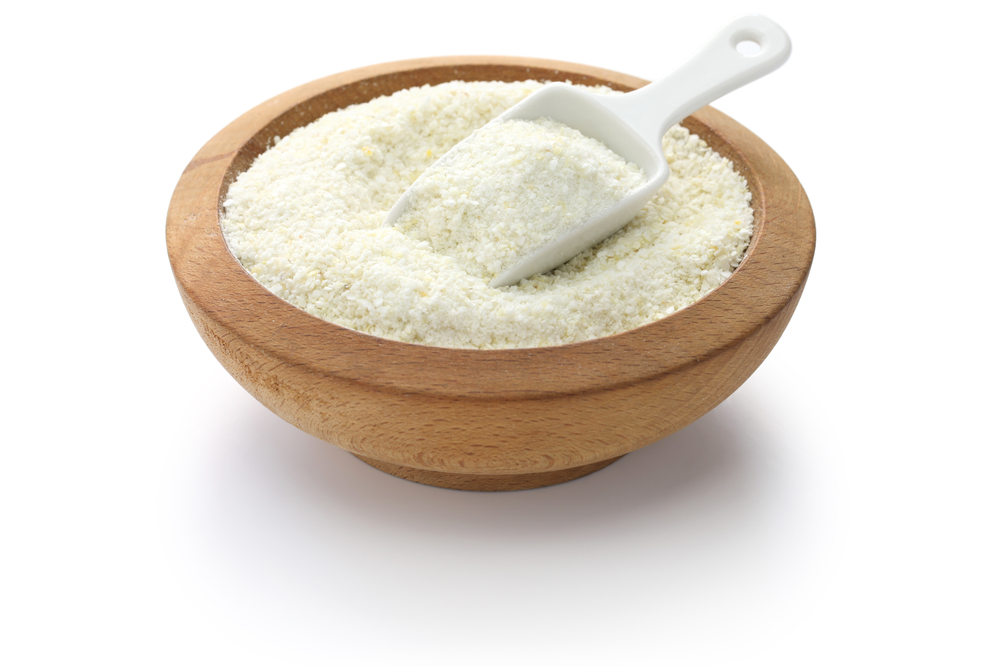As someone who enjoys cooking and baking, I know how frustrating it can be to find that you’re out of a key ingredient.
One such ingredient is buckwheat flour, which has a unique nutty flavor and is often used in gluten-free recipes.
However, if you don’t have any buckwheat flour on hand or if you have celiac disease or gluten intolerance, there are several substitutes that you can use.
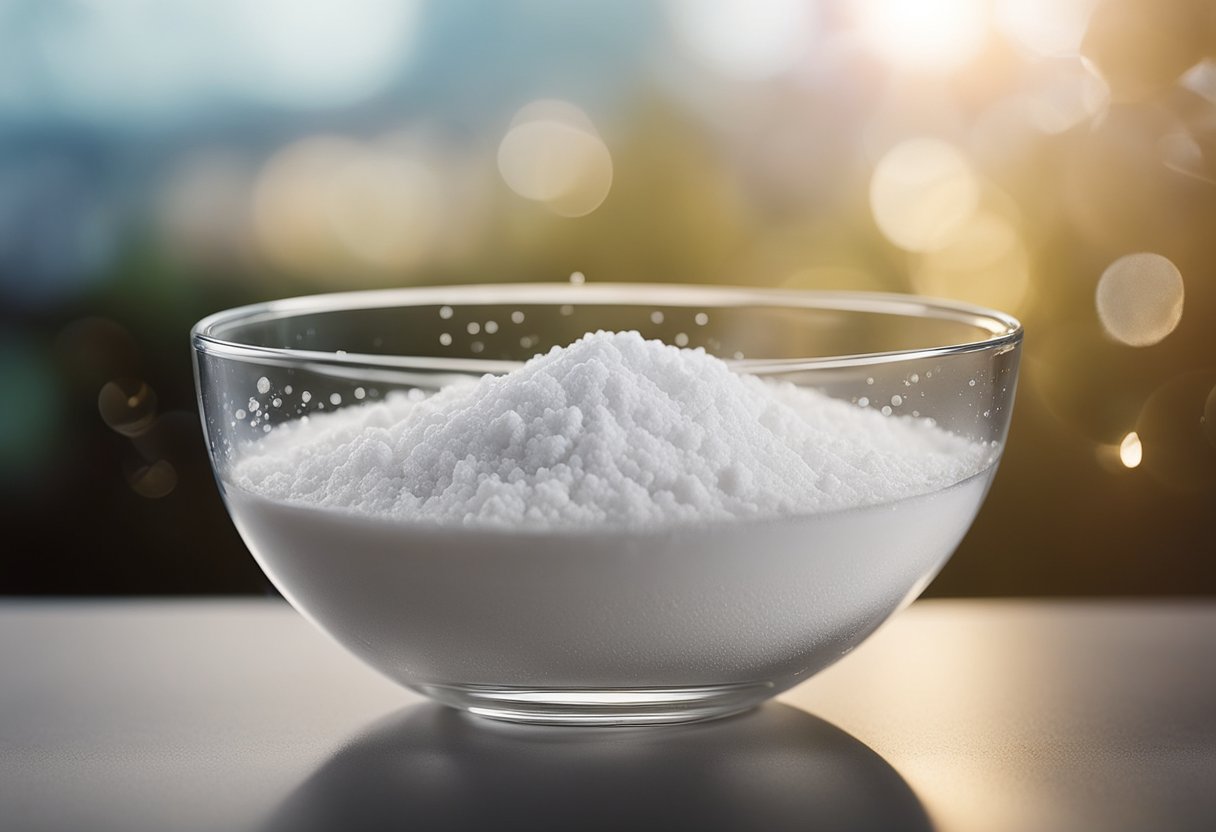
Understanding Buckwheat Flour is essential to finding the right substitute. Buckwheat flour is gluten-free and is made from the seeds of the buckwheat plant. It has a distinct nutty flavor and is often used in pancakes, noodles, and baked goods.
However, it can be challenging to find in some areas, and it can be expensive. Luckily, there are several gluten-free substitutes for buckwheat flour that you can use in your recipes.
Key Takeaways
- Buckwheat flour is a gluten-free flour that has a unique nutty flavor and is often used in pancakes, noodles, and baked goods.
- If you don’t have any buckwheat flour on hand or have celiac disease or gluten intolerance, there are several substitutes that you can use, including oat flour, almond flour, and rice flour.
- When substituting for buckwheat flour, it’s essential to consider the flavor and texture of the substitute and adjust the recipe as needed.
Understanding Buckwheat Flour
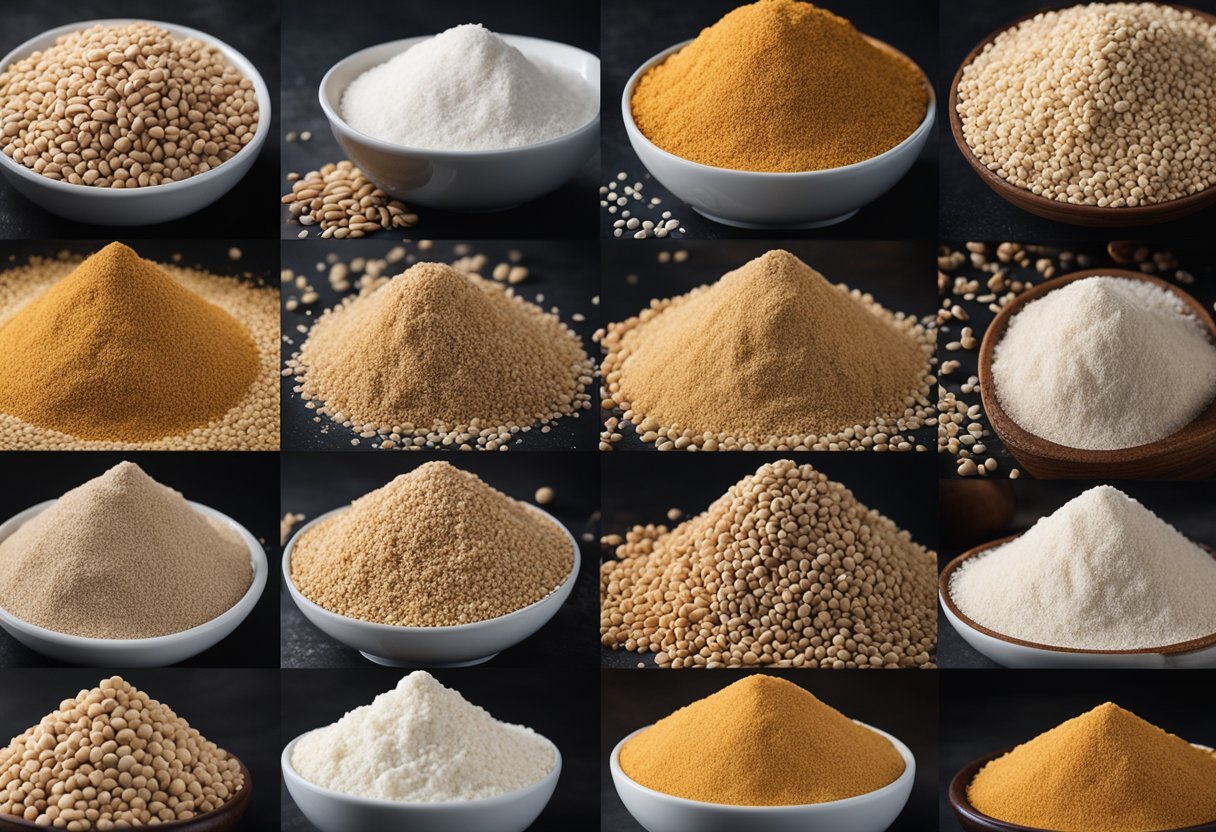
As a food ingredient, buckwheat flour is becoming increasingly popular due to its gluten-free properties and nutritional value.
Buckwheat flour is derived from the seeds of the buckwheat plant, which is not a cereal grain, but rather a pseudo-cereal.
Nutritional Profile
Buckwheat flour is a rich source of fiber, protein, magnesium, and amino acids. It also contains various vitamins and antioxidants that are beneficial to the body.
Buckwheat flour is a nutritious alternative to wheat flour, making it a popular choice for those with gluten intolerance or celiac disease.
Culinary Uses
Buckwheat flour has a unique flavor profile that is nutty, earthy, and slightly bitter. It is commonly used in bread, cakes, pancakes, muffins, and other baked goods.
Buckwheat pancakes are a popular breakfast item in many countries. Buckwheat flour is also used in the preparation of noodles, sauce, and batter.
Flavor Profile
Buckwheat flour has a distinct nutty and earthy flavor that is slightly sour and bitter. It is an acquired taste that may take some getting used to.
However, when used in the right recipe, buckwheat flour can add depth and complexity to dishes.
In conclusion, buckwheat flour is a versatile and nutritious ingredient that can be used in a variety of dishes. Its unique flavor profile may not be for everyone, but it is definitely worth trying out for those looking for a gluten-free alternative to wheat flour.
Gluten-Free Substitutes
When it comes to gluten-free baking, finding the right substitute for buckwheat flour can be a challenge.
Fortunately, there are many gluten-free flours that can be used as a substitute for buckwheat flour. Here are some of the most popular options:
Rice Flour
Rice flour is a popular gluten-free flour that can be used as a substitute for buckwheat flour. It has a mild flavor and a fine texture, making it a great choice for baked goods like cakes, cookies, and bread.
Keep in mind that rice flour can be a bit gritty, so it’s best to use it in combination with other gluten-free flours.
Oat Flour
Oat flour is another great gluten-free flour that can be used as a substitute for buckwheat flour. It has a slightly sweet, nutty flavor and a fine texture, making it perfect for baked goods like muffins, pancakes, and bread.
Keep in mind that some people with celiac disease or gluten sensitivity may not be able to tolerate oats, so be sure to check with your doctor before using oat flour.
Quinoa Flour
Quinoa flour is a gluten-free flour made from ground quinoa seeds. It has a slightly nutty flavor and a light, fluffy texture, making it a great choice for baked goods like cakes, cookies, and bread.
Quinoa flour is also high in protein and fiber, making it a healthy choice for gluten-free baking.
Chickpea Flour
Chickpea flour, also known as garbanzo bean flour, is a gluten-free flour made from ground chickpeas. It has a slightly nutty flavor and a dense texture, making it a great choice for savory baked goods like crackers, flatbreads, and socca.
Chickpea flour is also high in protein and fiber, making it a healthy choice for gluten-free baking.
Sorghum Flour
Sorghum flour is a gluten-free flour made from ground sorghum grain. It has a slightly sweet, nutty flavor and a fine texture, making it a great choice for baked goods like cakes, cookies, and bread.
Sorghum flour is also high in protein and fiber, making it a healthy choice for gluten-free baking.
Almond Flour
Almond flour is a gluten-free flour made from ground almonds. It has a slightly sweet, nutty flavor and a fine texture, making it a great choice for baked goods like cakes, cookies, and bread.
Almond flour is also high in protein and healthy fats, making it a healthy choice for gluten-free baking.
Coconut Flour
Coconut flour is a gluten-free flour made from ground coconut meat. It has a slightly sweet, nutty flavor and a fine texture, making it a great choice for baked goods like cakes, cookies, and bread.
Coconut flour is also high in fiber and healthy fats, making it a healthy choice for gluten-free baking.
Teff Flour
Teff flour is a gluten-free flour made from ground teff grain. It has a slightly nutty flavor and a fine texture, making it a great choice for baked goods like cakes, cookies, and bread.
Teff flour is also high in protein and fiber, making it a healthy choice for gluten-free baking.
Tapioca Flour
Tapioca flour, also known as tapioca starch, is a gluten-free flour made from the root of the cassava plant.
It has a neutral flavor and a fine texture, making it a great choice for thickening sauces and gravies, as well as for baked goods like cakes, cookies, and bread.
Gluten-Free All-Purpose Flour
Gluten-free all-purpose flour is a pre-made blend of gluten-free flours and starches that can be used as a substitute for wheat flour in most recipes.
It typically contains a blend of rice flour, potato starch, tapioca starch, and xanthan or guar gum to help with binding. It can be used as a 1:1 substitute for wheat flour in most recipes.
In conclusion, there are many gluten-free flours that can be used as a substitute for buckwheat flour in gluten-free baking.
Whether you choose rice flour, oat flour, quinoa flour, chickpea flour, sorghum flour, almond flour, coconut flour, teff flour, tapioca flour, or gluten-free all-purpose flour, be sure to experiment with different combinations to find the perfect substitute for your recipe.
Other Flour Substitutes
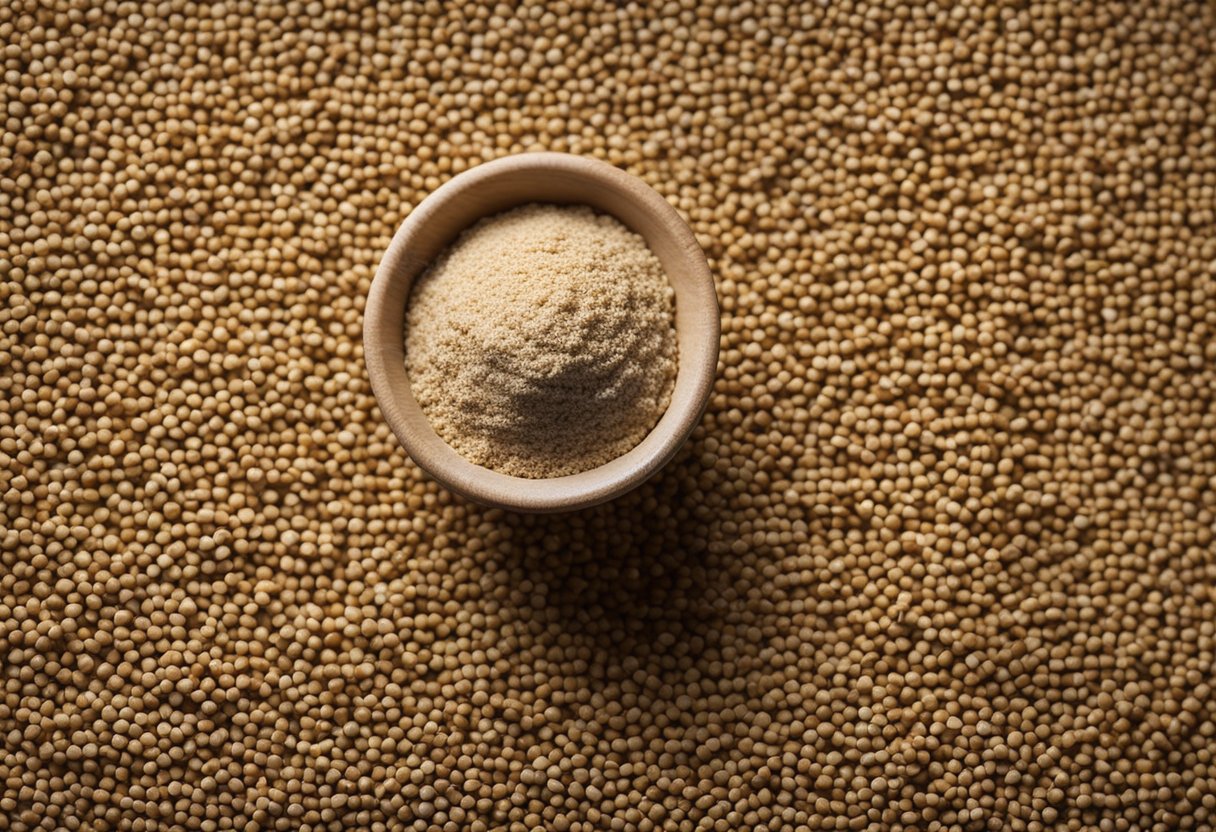
When it comes to finding substitutes for buckwheat flour, there are many options available.
In addition to the substitutes mentioned in the previous section, there are also several other types of flour that can be used as a replacement. Let’s take a closer look at some of these options.
Wheat Flour
One of the most common substitutes for buckwheat flour is wheat flour. This is because it has a similar texture and consistency to buckwheat flour, making it a good choice for many recipes.
However, it’s important to note that wheat flour contains gluten, which can be a problem for people with gluten sensitivities or celiac disease.
Spelt Flour
Spelt flour is another option for those looking to replace buckwheat flour. It has a slightly nutty flavor and a texture that is similar to wheat flour.
Spelt flour is also lower in gluten than wheat flour, making it a good choice for people with gluten sensitivities.
Rye Flour
Rye flour is a good option for those who want a more distinct flavor in their baked goods. It has a slightly sour taste and a denser texture than wheat flour.
Rye flour also contains less gluten than wheat flour, making it a good choice for people with gluten sensitivities.
Potato Flour
Potato flour is a gluten-free flour that can be used as a substitute for buckwheat flour. It has a mild flavor and a light, fluffy texture. Potato flour is also a good source of fiber and vitamins.
Pea Flour
Pea flour is a gluten-free flour that is made from ground peas. It has a slightly sweet taste and a light, airy texture. Pea flour is also a good source of protein and fiber.
In conclusion, there are many options available when it comes to finding substitutes for buckwheat flour. Whether you choose wheat flour, spelt flour, rye flour, potato flour, or pea flour, each has its own unique qualities and benefits.
By experimenting with different types of flour, you can find the perfect substitute for your recipe.
Using Flour Substitutes in Recipes
When substituting flour in recipes, it is important to understand the role of flour in the recipe. Flour can act as a binding agent, a thickening agent, or a leavening agent depending on the recipe.
The type of flour used can also affect the texture and flavor of the final product. Here are some guidelines for using flour substitutes in different types of recipes.
Baked Goods
When making baked goods, it is important to use a flour substitute that is absorbent and can provide structure to the dough.
Oat flour, almond flour, and rice flour are good substitutes for buckwheat flour in baked goods. These flours have a similar texture and can be used in the same volume as buckwheat flour.
However, the flavor and texture of the final product may be slightly different.
Pasta and Noodles
When making pasta and noodles, it is important to use a flour substitute that can provide the necessary structure and texture.
Rice flour and chickpea flour are good substitutes for buckwheat flour in pasta and noodles. These flours can be used in the same volume as buckwheat flour and will provide a similar texture.
Thickening Agent
When using flour as a thickening agent in soups, gravies, and puddings, it is important to use a flour substitute that can thicken the liquid without clumping.
Cornstarch, arrowroot powder, and potato starch are good substitutes for buckwheat flour as a thickening agent.
These substitutes can be used in the same volume as buckwheat flour and will thicken the liquid without clumping.
Binding Ingredient
When using flour as a binding ingredient in meatballs, patties, and other recipes, it is important to use a flour substitute that can hold the ingredients together.
Cornmeal, oat flour, and chickpea flour are good substitutes for buckwheat flour as a binding ingredient. These substitutes can be used in the same volume as buckwheat flour and will hold the ingredients together.
In conclusion, when substituting flour in recipes, it is important to understand the role of flour in the recipe and choose a substitute that can perform the same function.
Oat flour, almond flour, rice flour, chickpea flour, cornstarch, arrowroot powder, and potato starch are all good substitutes for buckwheat flour in different types of recipes.
Conclusion
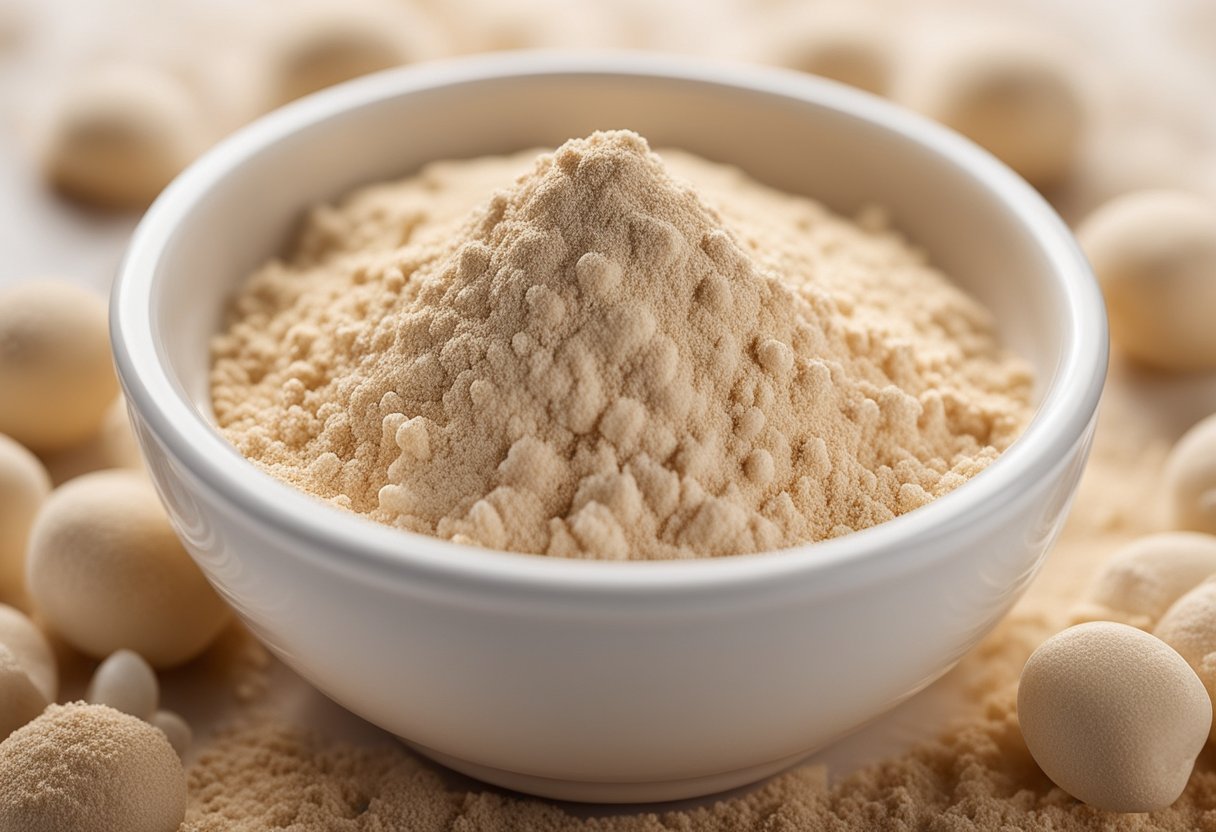
After researching and comparing various substitutes for buckwheat flour, I have found that there are many viable options available.
Depending on your dietary needs and preferences, you can choose from a variety of substitutes that are gluten-free, high in protein, or rich in minerals.
One of the most commonly used substitutes for buckwheat flour is wheat flour. If you are not concerned about gluten, then this is a great option that is easily available in most grocery stores.
Whole wheat flour is a good choice as it has a more mild taste than buckwheat, but it is still a great baking flour. It also contains fiber and protein, making it a healthy choice.
For those who are gluten-free, rice flour is a great option. It is also a good source of minerals such as magnesium and potassium.
Other gluten-free options include almond flour, coconut flour, and oat flour. Almond flour is high in protein and healthy fats, while coconut flour is high in fiber. Oat flour is also a great source of fiber and protein.
If you are vegan, then chickpea flour is a great option. It is high in protein and fiber, making it a healthy and filling choice. Another vegan option is quinoa flour, which is high in protein and minerals such as iron and magnesium.
In conclusion, there are many substitutes for buckwheat flour that can be used in a variety of recipes. Whether you are looking for a gluten-free option, a high protein option, or a vegan option, there are many choices available.
By experimenting with different substitutes, you can find the perfect one for your needs and preferences.
Frequently Asked Questions
What is the closest flour to buckwheat flour?
The closest flour to buckwheat flour is teff flour. It has a similar nutty flavor and texture, and it is also gluten-free. Other good substitutes include oat flour, almond flour, and quinoa flour.
Can I substitute almond flour for buckwheat flour?
Yes, you can substitute almond flour for buckwheat flour. However, keep in mind that almond flour is much denser and has a different texture than buckwheat flour.
You may need to adjust the amount of liquid in your recipe to compensate for this difference.
Can I substitute teff flour for buckwheat flour?
Yes, you can substitute teff flour for buckwheat flour. Teff flour has a similar flavor and texture to buckwheat flour, and it is also gluten-free.
However, keep in mind that teff flour is much denser than buckwheat flour, so you may need to adjust the amount of liquid in your recipe.
Can I use all-purpose flour instead of buckwheat flour?
Yes, you can use all-purpose flour instead of buckwheat flour. However, keep in mind that all-purpose flour is not gluten-free, and it has a different flavor and texture than buckwheat flour.
You may need to adjust the amount of liquid in your recipe to compensate for this difference.
What is a low carb substitute for buckwheat flour?
A low carb substitute for buckwheat flour is almond flour. Almond flour is low in carbs and has a similar texture to buckwheat flour. Other good low carb substitutes include coconut flour and hazelnut flour.
Can you substitute buckwheat flour for oat flour?
Yes, you can substitute buckwheat flour for oat flour. However, keep in mind that oat flour has a milder flavor and a different texture than buckwheat flour.
You may need to adjust the amount of liquid in your recipe to compensate for this difference.




